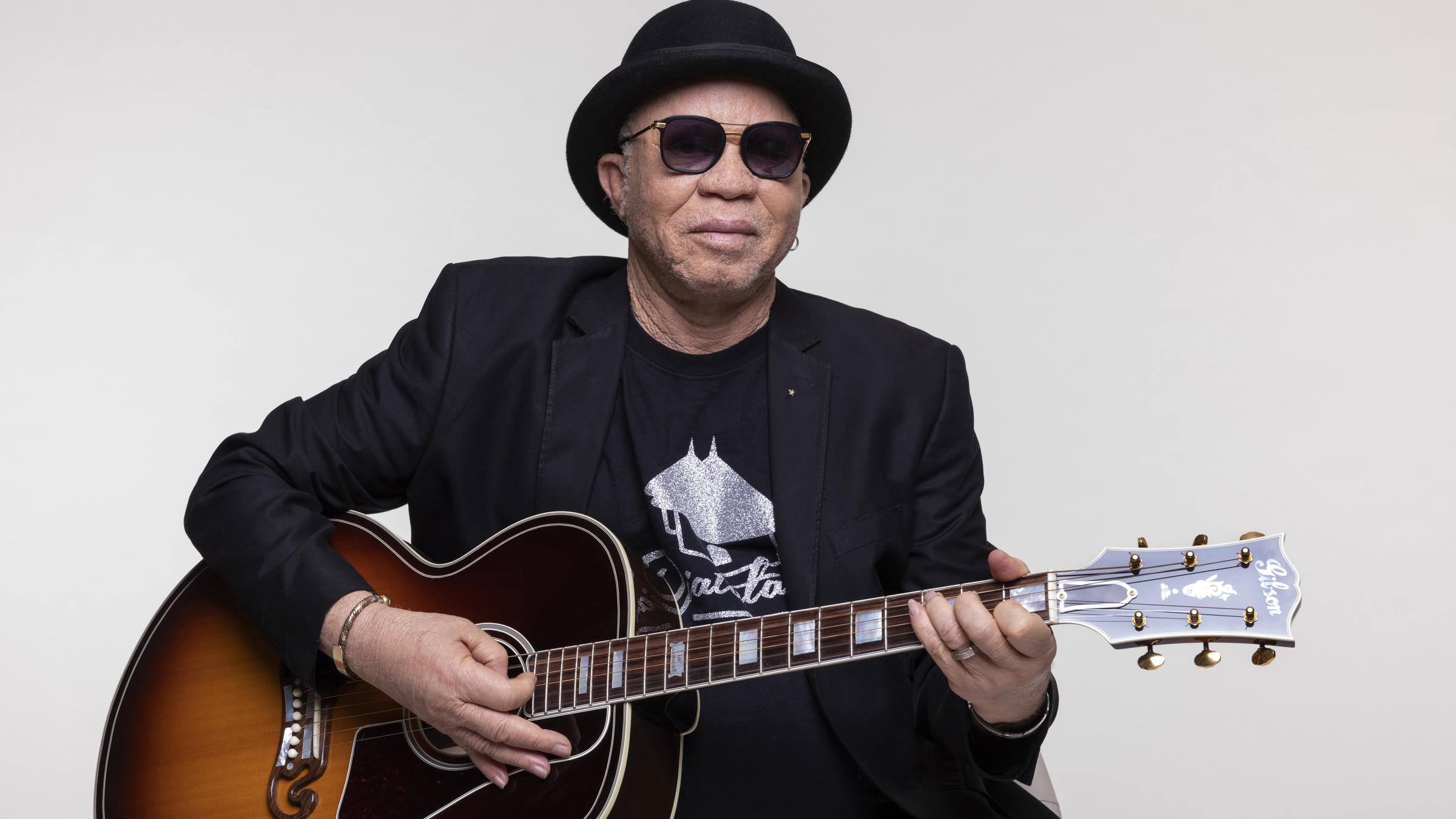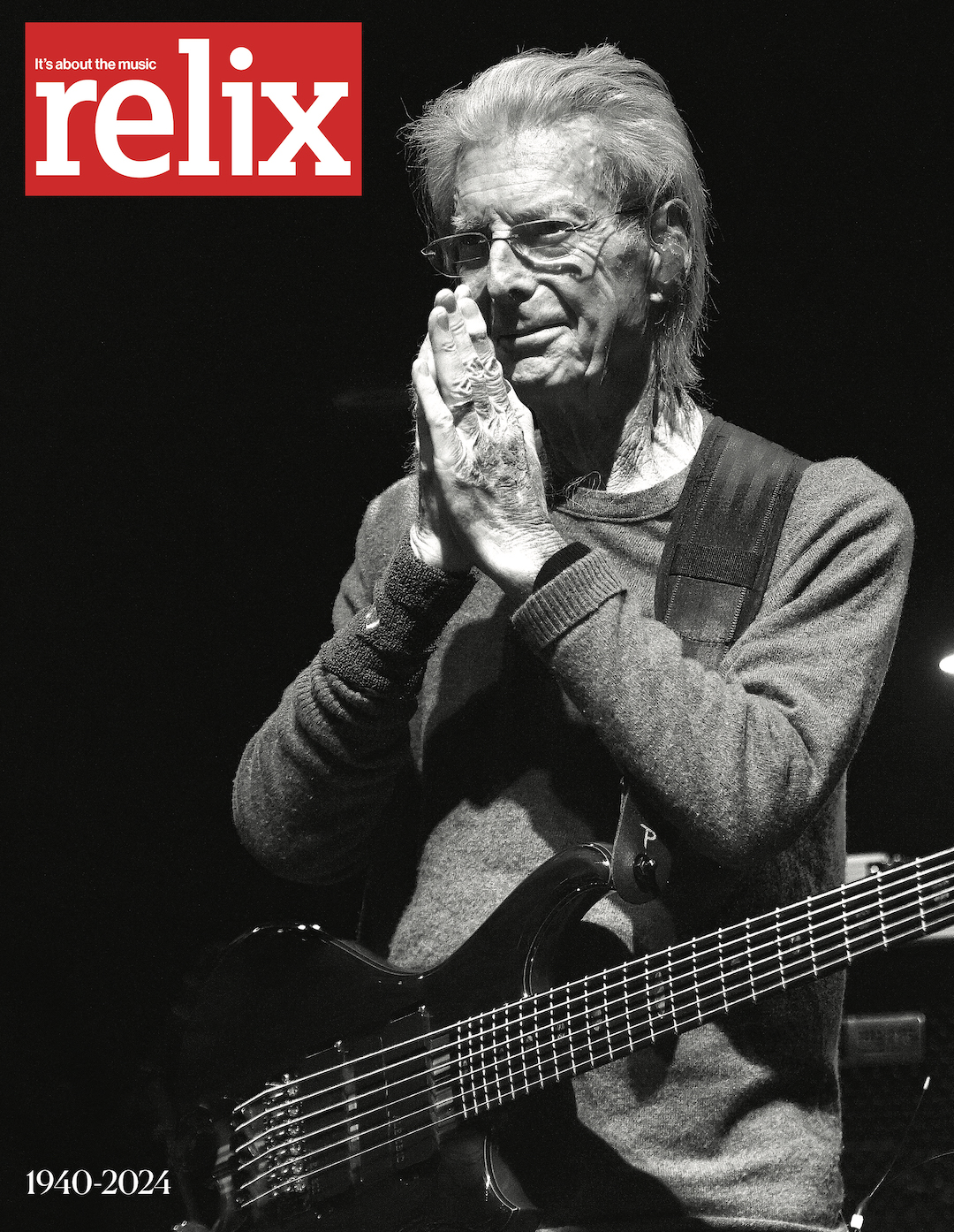Global Beat: Salif Keita

photo by Thomas Dorn
The “Golden Voice of Africa” celebrates 50 years in the music biz with his final hurrah.
In the vast turn 70 this year and mark a full half-century in the music industry. He’s been called the “Golden Voice of Africa;” he’s also long been an outspoken human rights activist and leading advocate for people with albinism. He’s toured the world time and time again, collaborating with Carlos Santana, Esperanza Spalding and Wayne Shorter along the way, and grown into one of Africa’s best known stars in Europe and the United States. And now it’s time to say goodbye.
In late 2018, Keita released Un Autre Blanc—“Another White”—an album over three years in the making, and the one he’s calling his last. The 10-song record includes deeply spiritual Malian folk and soul music, equipped with somersaulting percussion, a bright backing chorus, Keita’s understated, mesmerizing guitar and, of course, a gorgeous from-the-belly voice that could rattle even the most stoic listener. With Ladysmith Black Mambazo, Angélique Kidjo, Alpha Bondy and more lending their services, Un Autre Blanc is also a showcase for a whole lineage of African stars, proving that Keita is the seed from which so much music has grown. But that doesn’t mean it was easy to create.
“Quite simply,” says Keita, through a translator from his native French, “I am tired. Recording an album is a long and exhausting process for me. And as most young people seem more interested in individual songs rather than complete albums, I’m content to say this is my last.”
Un Autre Blanc was recorded between Mali’s capital city, Bamako, and Paris, Keita’s adopted second home. The songs center on the same uplifting themes that have carried his work for decades: “Love, gratitude and concern for fellow human beings,” he says.
But, as his first solo album in a little over six years (since 2012’s critically acclaimed Talé), it stands to introduce Keita’s music to an audience that’s only been growing. In recent years, Malian acts like the Saharan bluesmen Tinariwen, the effortlessly funky Amadou & Mariam and the guitar warrior Vieux Farka Touré have all joined Keita as Malian musical ambassadors across the globe.
Keita, though, is hesitant to embrace that role. Malian or not, he sees himself merely as a vehicle for his songs—and for the joy and love they inspire.
“I’ve never felt that [I represented Malian music],” he says. “I can only compose and perform the music that I find within me, the songs that I want to express. I’ve never tried to pursue a particular direction.”
Thankfully, what he’s wanted to express is what made Salif Keita a star. Born with albinism in Africa in 1949, Keita grew up misunderstood and often ridiculed. Despite being a descendent of royalty—or maybe because of it—he was born an outcast, his community fearing him as a harbinger of bad luck. Music became an escape, a salvation. By his late teens, he’d left his village for the capital and linked up with the Rail Band and, later, Les Ambassadeurs, both pioneers in the burgeoning Malian Afro-rock scene. A bold move to Paris in 1984 opened the door to unlimited opportunity for Keita; by the mid-‘80s, he was an international star.
The sting of his childhood never faded, but Keita became a leading crusader against the persecution of people with albinism through his Salif Keita Global Foundation—a role that will likely continue after hanging up his studio cap. And, people seem ready to hear his message.
“There is still deeply rooted prejudice and pre-conceived notions [about people with albinism] in Africa, and there’s an urgent need to educate and inform people of how traditional healers and witch doctors continue to exploit these people to fill their pockets,” he says. “There may be cultural differences—from Mali to Tanzania to South Africa—but these practices are still widespread across the continent.”
With Un Autre Blanc wrapped and released, Keita will play around Africa and beyond through December 31, then he’s taking a well-deserved break. Fans will likely find him at home with his family, or kicking back at his island resort outside Bamako, Djataland, tucked alongside the Niger River.
Keita maintains that we may hear his voice on a song, or from a stage, down the road. But his days of spending endless hours chipping away at a full album have ended. And what of his legacy?
“Is that for me to say? I would want my music to help people all over the world appreciate the power and beauty of African music,” he says. “Our music is a universal language. Everyone can understand.”
This article originally appears in the April/May 2019 issue of Relix. For more features, interviews, album reviews and more, subscribe here.



















